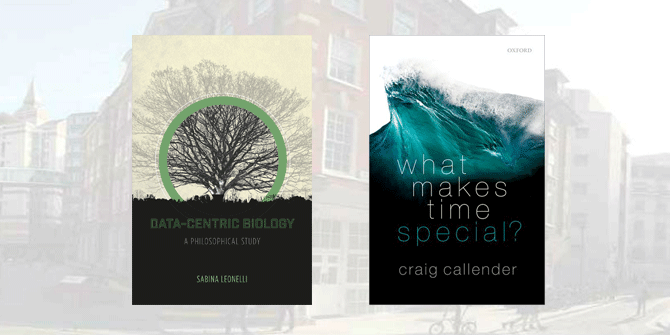The London School of Economics and Political Science is pleased to announce the winners of the 2018 Lakatos Award.
The 2018 Lakatos Award is to be awarded to Sabina Leonelli for her book Data-Centric Biology: A Philosophical Study (University of Chicago Press, 2016), and to Craig Callender for his book What Makes Time Special? (Oxford University Press, 2017).
The Lakatos Award is given for an outstanding contribution to the philosophy of science, broadly construed, in the form of a book published in English during the previous five years.
The Lakatos Award was made possible by a generous endowment from the Latsis Foundation, in memory of the former LSE professor Imre Lakatos. It is administered by an international Management Committee, which is organised from the LSE but entirely independent of LSE’s Department of Philosophy, Logic and Scientific Method. The Committee decides the outcome of the Award competition on the basis of advice from an anonymous panel of Selectors who produce detailed reports on the shortlisted books.
The two prize winners will receive their awards and deliver their prize lectures at the LSE in the autumn of 2018, at a time and location to be confirmed later. The lectures will be open to the public.
Leonelli’s book is praised by the Selectors as “a ground-breaking, richly interdisciplinary and scientifically-engaged study that productively reframes philosophical conceptions of data” and as “carefully researched, interesting and genuinely original”. The book breaks new ground because its subject matter “is of enormous topical importance, and yet has been hardly addressed by philosophers of science at all” and it “expands the scope of philosophical inquiry to a number of questions that philosophers have neglected: data acquisition and handling, and the transmission of data through various processes of decontextualizing”. This makes Leonelli “a pioneer in drawing attention to the variety of forms and uses of data, to the importance to scientists of the modes of data production and curation.”
Callender’s book is rated as an “ambitious and highly original contribution to the philosophy of time”, which “displays nothing short of profound insight into the way physics informs old debates about time”. It is “an important, powerful and original book. It displays an impressive mastery of the relevant physics and puts it to excellent use”. The book is a “densely-argued, fascinating treatment of the problem of time, that breaks new ground” and “will be compulsory reading for anyone interested in the topic [of time], not just philosophers of physics”. It “deserves special recognition for the way in which it integrates physics, metaphysics, and psychology” and for recruiting “an enormously wide range of interdisciplinary resources to make a case”.



Connect with us
Facebook
Twitter
Youtube
Flickr